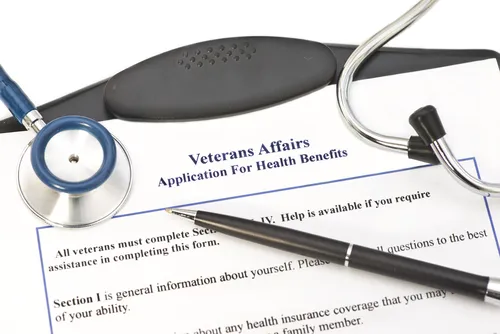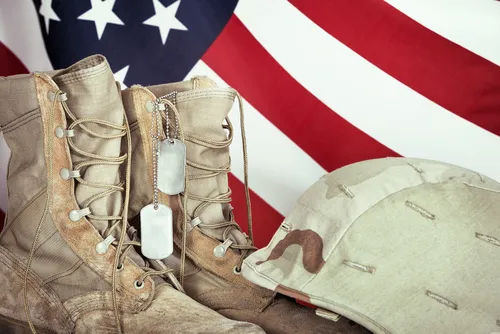The VA Disability process is often a very daunting task. Applications can be denied despite the applicant being entitled to and eligible to receive one or more veteran disability benefits.
The lawyers at Ascend Disability have helped countless veterans secure VA disability benefits and we are successful in dealing with complex cases that involve conditions and injuries that are difficult to prove.
Qualifying Disabilities For VA Benefits
To qualify for a VA disability benefit, you will need to have served in the U.S. Armed Forces, suffering from an injury or condition related to your service.
This will include illnesses and injuries that occurred while you were serving or when a “preexisting condition” has worsened caused by your service.
VA disability benefits also include the disabilities caused by a veteran’s military service that was only discovered after their service concluded.
What Injury Types Qualify For Veteran Disability Benefits?
Any type of debilitating injury typically qualifies for VA disability benefits. This can include a range of physical disabilities including:
- Chronic pain
- Paralysis
- Serious hearing loss
- Loss-of-limb injuries
There are also psychological conditions that qualify. These include depression, anxiety, and PTSD. Unfortunately, many veterans do not consider these types of conditions to be a disability, even when they find it incredibly hard to live a social, active life, and retain meaningful employment.
How the Claim Process Works
The VA Disability Process involves the following steps:
1.) Application
As a veteran, you can either file the application on your own or ask for assistance. It is vital to ensure your “initial application” is filed correctly, since benefits will be awarded retroactively from the date that your initial claim was filed.
If they deny your application at the appeals or initial stage due to errors, you might need to start again with a completely new claim. This could result in you losing months or years of your retroactive benefits.
2.) Processing
From here the BVA reviews the claim, gathers evidence, reviews all the evidence, makes a recommendation, and then reviews the recommendation. After this, they will decide on a disability rating as well as the benefit amount (if any) to award.
At any stage in this process, the BVA may decide that more evidence will be needed, which will return your claim to the stage of gathering information.
3.) Denial Or Acceptance Of The Initial Application
If the BVA (Bureau of Veterans Affairs) denies your claim, you are permitted to appeal this decision within both the U.S. courts and the BVA, using this sequence:
- DRO (Decision Review Officer) or the BVA (Board of Veterans Appeals)
- U.S. Court of Appeals For Veterans Claims
- U.S. Court of Appeals For The Federal Circuit
- U.S. Supreme Court
4.) Notice Of Disagreement
The initial step involved in the BVA Disability Appeals process involves filing a “notice of disagreement”. You have the choice of choosing to have your case reviewed by either the Board of Veterans Appeals or the DRO (Decision Review Officer) within the VA.
If you have a complex case, Ascend Disability suggests that your case should be taken to the Board of Veterans Appeals. Every case is unique which is why you should hire an attorney that has extensive experience in the veteran’s disability appeals and claims process.
What To Do If You Are Denied Your VA Benefits?
You may be under the assumption that after receiving a denial letter that there is nothing left to do. However, if you have received a letter that denies your claim, you have a year in which to file an appeal.
The appeals process is often complicated and usually leads to much frustration, but it is vital to file an appeal as soon as possible. You should also ensure your appeal is handled and prepared correctly to increase the likelihood of success.
This is why it is important to work with the right VA disability lawyers. The VA might not offer the resources most veterans require to navigate and understand these processes, but Ascend Disability is standing by to help.
Before abandoning your VA disability claim, here are the steps you need to follow for another chance to receive the assistance you deserve:
Submit A NOD (Notice of Disagreement) For Review
If your VA claim was denied, you need to file an appeal quickly. Using the VA form 21-0958 your Notice of Disagreement can be filed with the VA which will appeal the original claim.
When this form is filed, this will initiate a brand-new claims process with the BVA (Board of Veteran Appeals) or a DRO (Decision Review Officer).
Contact A Skilled Veterans Disability Lawyer
Appeals processes are complex. It is important to hire a professional lawyer so they can collect evidence, file necessary paperwork and begin the appeal process.
You can prevent potential frustration and headaches and make sure that the claim that was denied is reversed on the first try.
Ascend Disability Lawyers frequently deals with veteran appeals. We are focused on working hard to make sure each of the clients that we work with gets the compensation and respect they rightly deserve.
If you were denied benefits during the VA Disability Process, and you require legal assistance, contact Ascend Disability today at (855) 445-9787 to book a consultation with one of our experienced VA disability lawyers.








